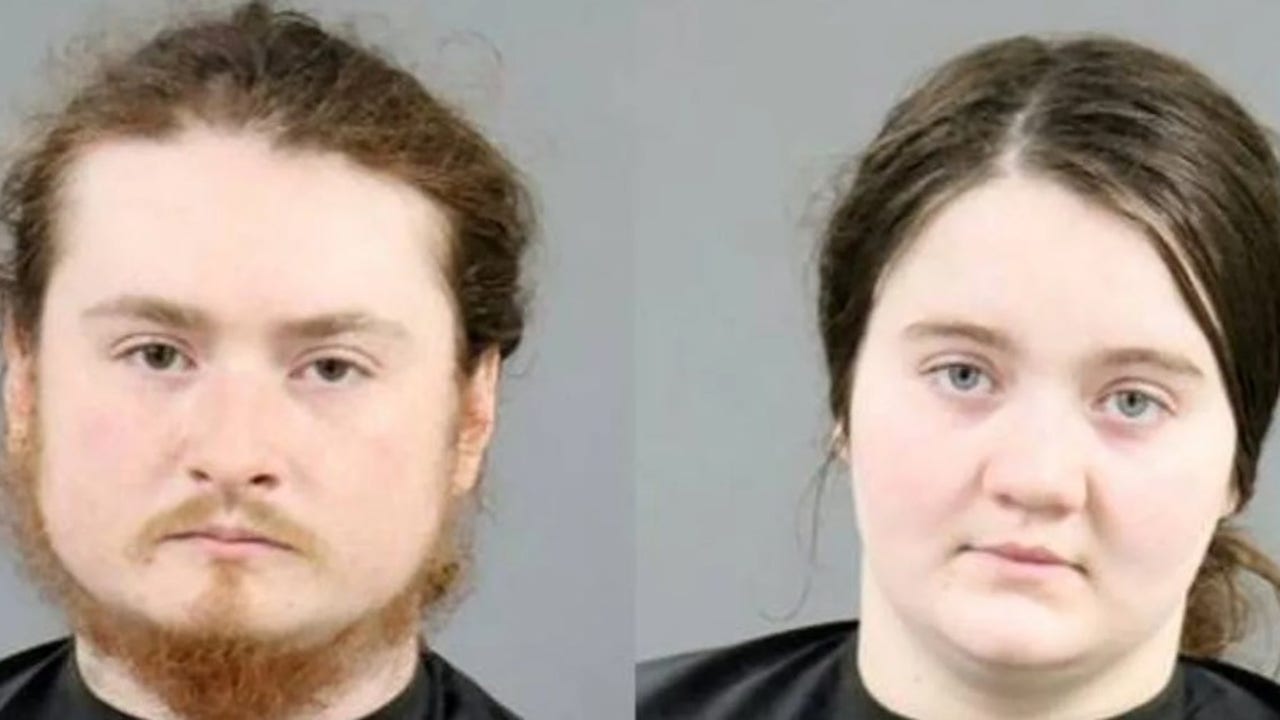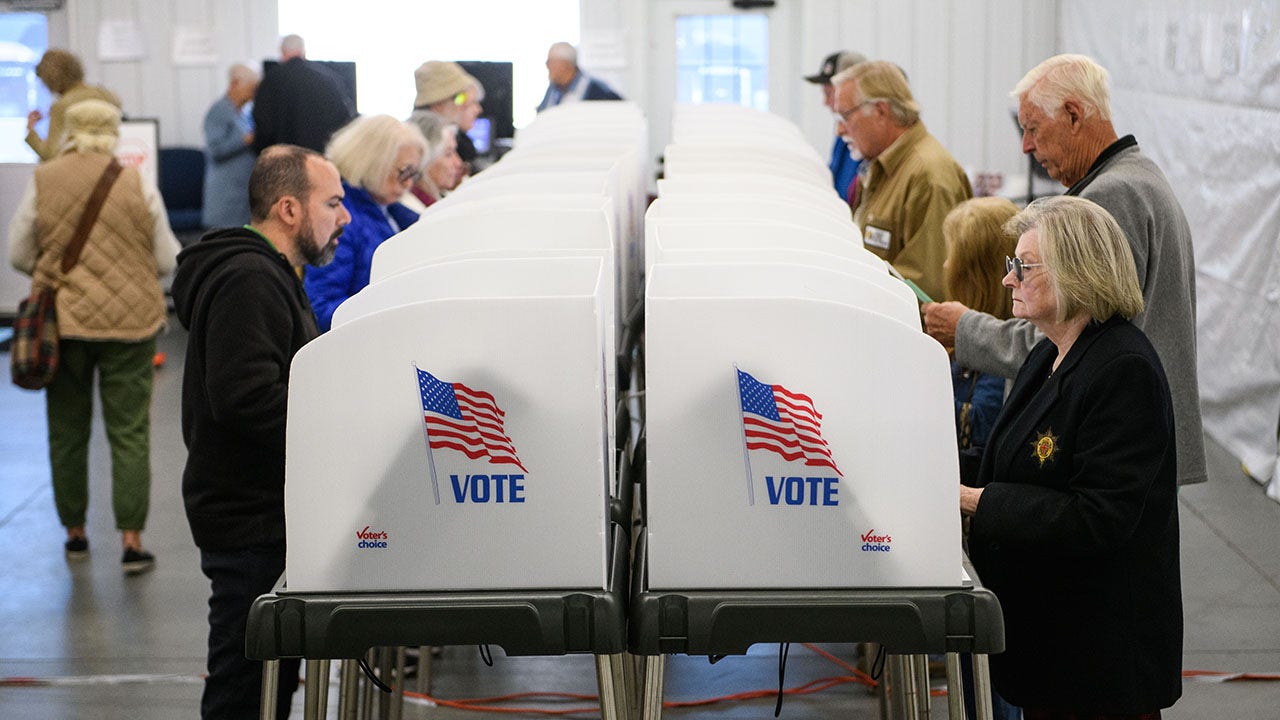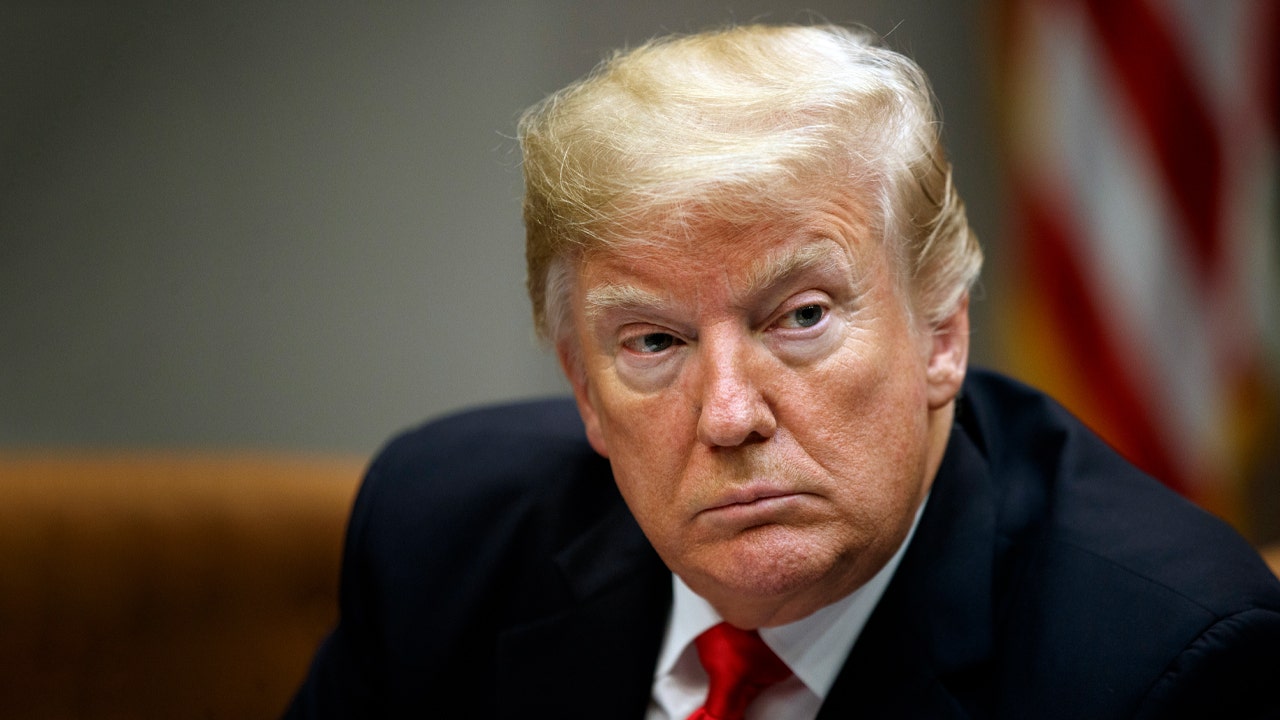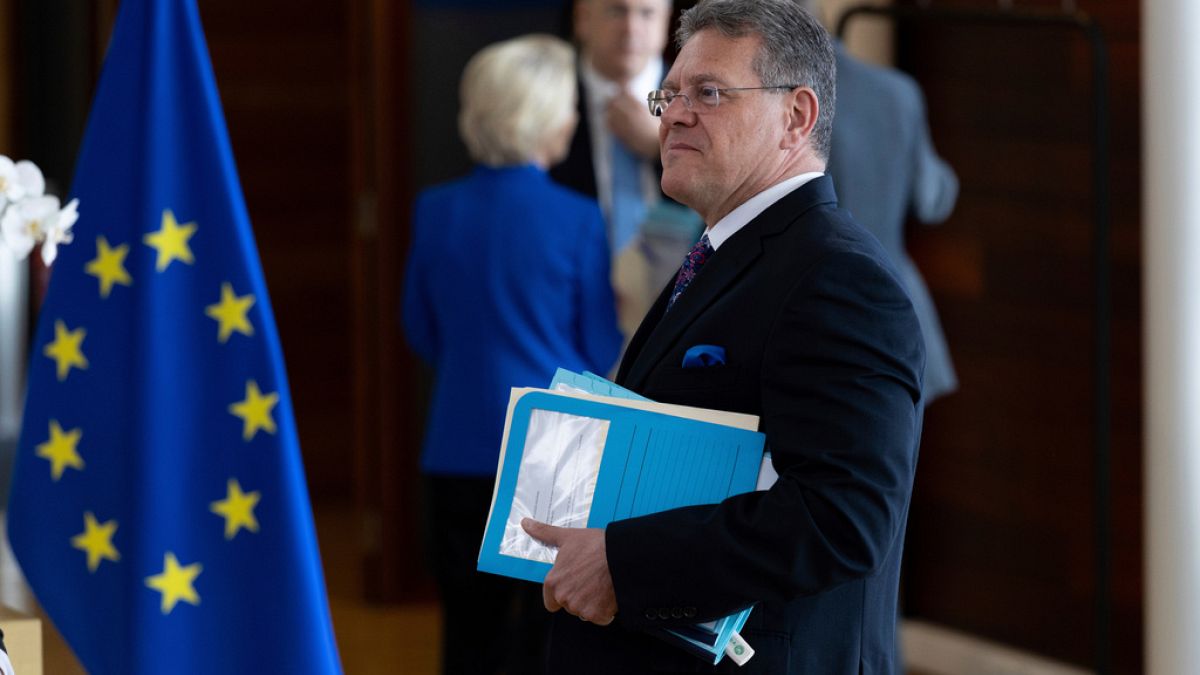New York
From Cell to City Hall: Candidate’s Win Shows Shift in Politics of Crime

During New York City’s crack era in the early 1990s, with homicide tallies five times higher than today, the authorities resorted to ruthless law enforcement.
“The police would pull your car over at will, just because you were Black, and go through the car and your pockets,” said Derrick Hamilton, 57, who grew up in public housing in Brooklyn in the 1980s and was first arrested as a teen. “They’d pull your socks off, pull your pants off.”
Crime fell across the country during the ensuing decades in a broad societal shift, and New York become one of America’s safest big cities and a thriving tourist destination. But in its darkest days police and prosecutors had cut corners and used tactics that left untold numbers of innocent people — mostly poor men of color — imprisoned on bogus murder, rape and robbery charges.
The prisoners’ dogged legal challenges prompted reinvestigations helped by left-leaning prosecutors, advances in DNA testing, pressure from newly formed advocacy groups and generous government restitution, turning New York into a national hotbed of exoneration. In recent years, one innocent middle-aged man after another has been released, ravaged by years in prison, into a tamer city.
There is no more striking personification of the change than Yusef Salaam, 49, who was arrested in the infamous 1989 Central Park jogger rape case, in which detectives coerced false confessions out of five Harlem teenagers. They were exonerated after years in prison.
Last month, Mr. Salaam won a Democratic primary for a City Council seat, making him all but certain to become the first exoneree to hold elective office in the city.
“It was inconceivable in the 1990s that Yusef Salaam could be elected to the City Council, but all these years later, there’s a change in the public consciousness and there’s now a willingness to put victims from that era in positions of authority,” said Joel Rudin, a lawyer who has handled dozens of wrongful conviction claims. “We’ve come a very long way.”
Once, prosecutors’ offices were invested in defending bad convictions, but now they uncover them with review units in all five boroughs. Progressive district attorneys who campaigned on the issue have dismissed hundreds of lower-level convictions linked to discredited police officers.
The cause has attracted wealthy patrons, as well as prestigious law firms now devoting pro bono work. It has become fodder for documentaries, docudramas and podcasts.
For the exonerated, compensation cases are being settled for increasing amounts, often totaling well over $10 million. Over the past decade, the city has paid out about $500 million. And payouts for claims against New York State, another source of compensation, are among the country’s highest.
Taken together with recoveries from civil rights cases, the more than $1 billion paid out to those wrongly convicted in New York is the highest of any state in the country by far, according to Jeffrey Gutman, a law professor at George Washington University. A small industry of private lawyers has sprung up to help former prisoners get paid, and to get paid themselves.
The situation was engendered by a very different New York. For many residents, streets and subways were to be avoided after dark. Bryant Park in Midtown, today a revitalized urban gem, was a drug market. In 1990, there were nearly 2,250 murders, five times today’s totals.
For the police, it was a time to crack down on minor offenses, and street crime units operated under the motto “We own the night.”
The desperation to catch and convict at any cost fostered “a willingness to bend the rules,” Mr. Rudin said.
Emboldened detectives manufactured cases by manipulating witnesses, coercing confessions, using suggestive identification procedures and withholding exonerating evidence, he said. Locking up a certain percentage of innocent people was simply “collateral damage.”
Mr. Salaam said in an interview last week that he and the other members of the Central Park Five were “run over by the spiked wheels of justice,” thanks to detectives who knew which levers they could pull in 1989.
“The system was operating exactly how it was designed,” he said. “These were people who were supposed to be protecting and serving us, but they literally built their careers off the backs of folks just like me.”
As the city’s economy improved and unemployment declined throughout the 1990s, murder and other violent crime decreased. Bad arrests continued nonetheless.
Rudolph W. Giuliani took office in 1994 with a pledge to crack down on crime through aggressive policing. His administration was plagued by allegations of police brutality and civil rights abuses, as well as wrongdoing like the torture of Abner Louima and killing of Amadou Diallo.
The highest totals of bad convictions in the city came in 1997, when there were 22, of which 15 were for murder, as listed on the National Registry of Exonerations. The group lists at least 230 exonerations for New York City since 1989.
“Detectives were expected to clear cases, and once they had made up their mind, they’d stop investigating,” said Irving Cohen, 80, who has represented about 15 wrongfully convicted New Yorkers since the late 1980s. He recalled receiving weekly letters from inmates asking for help. “There were a lot of homicides,” he said. “They did whatever they had to do to get the person convicted, whether they believed the person was guilty or not.”
Mr. Salaam’s exoneration in 2002 was a stunning reversal, one of the first cases that showed the pitfalls of New York’s wholesale justice. A convicted murderer and serial rapist admitted that he was responsible for the attack, and the Manhattan district attorney’s office filed court papers clearing Mr. Salaam and the other members of the Central Park Five.
But some police officials continued to blame the wrongly convicted men despite D.N.A. evidence. The district attorney at the time, Robert M. Morgenthau, found no coercion by officers or prosecutors.
Many dismissed cases involved a relative handful of officers, including Louis Scarcella, a former Brooklyn homicide detective whose conduct has led to the review of dozens of cases and to at least eight murder convictions being overturned. Mr. Scarcella has denied any wrongdoing.
One of his cases was that of Mr. Hamilton, who served more than 20 years on a 1991 murder charge. He litigated from prison, with limited access to phones and correspondence materials. He drafted briefs from a cramped cell, researched cases in a meager law library and wrote legal letters longhand from solitary confinement.
For Mr. Hamilton, things changed when a key eyewitness came forward years after his conviction to say that Mr. Scarcella had coerced her into lying.
The case was taken up by the Brooklyn district attorney’s conviction integrity unit, which, with more than 30 exonerations since 2014, is one of the most robust units in the nation and one reason the borough has by far the highest number of overturned convictions of any in the city, with 88 on the national registry.
In 2019, after the Bronx prosecutors’ conviction integrity unit and the Innocence Project presented new evidence, a judge vacated the 1989 murder conviction of Huwe Burton, who had been coerced by detectives into a false confession at age 16.
The Bronx district attorney, Darcel Clark, said that detectives had used the discredited practices of the era.
“What they did was not necessarily wrong — that is the way things were done then,” she told The New York Times in 2019. “For 1989, that was standard practice for the N.Y.P.D., but now we know better.”
Some disagree. Police and prosecutors are almost never disciplined for misconduct, including coercing innocent suspects into confessing, said Rebecca Brown, who for the past eight years was director of policy at the Innocence Project in Manhattan.
And police still can lie and make false promises to suspects, including children, to elicit false confessions, she said.
“Many of the contributing causes are still alive and well in New York City,” she said. “There’s nothing resembling robust accountability.”
Still, changes have been made to interrogations and suspect lineups, and there is more oversight of prosecutors and access to officers’ discipline records.
Standards have been improved for obtaining more reliable confessions and identifications, Mr. Rudin said, adding that judges and prosecutors are now generally more skeptical of cases built around jailhouse informants. Defense lawyers, previously stymied by limited access to prosecutors’ case information, are now entitled to more of it, and can prepare a proper defense, he said.
And the politics have changed. In Mr. Salaam’s City Council campaign, he spoke often about his conviction and exoneration. In his interview, he urged measures like drug treatment instead of prison for drug offenders and allowing lower-level offenders to avoid Rikers Island.
“We don’t want to put innocent people in jail,” he said.
As for Mr. Hamilton, he has worked since his release as an activist and paralegal to identify and overturn other wrongful convictions, including numerous ones linked to Mr. Scarcella. He is part of a brotherhood of exonerees who cooperate to prepare legal briefs and continue to visit inmates, donate money and raise awareness about cases.
“My loyalty,” he said, “is to those guys still wrongfully in prison.”

New York
N.Y.C.’s Mayoral Candidates Spent Millions on TV Ads. What Are They Saying?

Estimated spending on
broadcast ads that have aired
$1.1 million
$4.3 million
The Democrats running for mayor in New York City and a super PAC supporting Andrew M. Cuomo are spending millions to reach potential voters, with much of the spending going toward commercials on broadcast television. A New York Times analysis of the broadcast ads that have aired so far, using data from AdImpact, explored the major themes highlighted by the candidates: crime and safety, President Trump, affordable housing and corruption.
Among the ads aired,
seven mention crime and safety
3 ads
Mr. Cuomo, the former governor, has been framing himself as a law-and-order candidate who will crack down on crime and improve public safety. Ads run by Fix the City, the super PAC backing Mr. Cuomo, have depicted New York as a city in chaos. One of its ads opens with images of police sirens, caution tape and subway riders fleeing a smoke-filled train.
“Crime is rampant,” says a voiceover in another pro-Cuomo ad, also paid for by Fix the City. That ad also references Mr. Cuomo’s “five-borough crime and affordability plan,” which would add “5,000 more cops” to the streets.
Other candidates took a subtler approach. Scott Stringer, a former city comptroller, said in his only broadcast ad to air so far that he would “put a cop on every train” and “hire more mental health workers.” An ad for Brad Lander, the current city comptroller, tied the idea of safety to Mr. Lander’s plan to “end street homelessness for the mentally ill.” An ad for Zohran Mamdani, the state assemblyman, simply said he would make New York a “safer city.”
Among the ads aired,
five mention President Trump
2 ads
Taking jabs at Mr. Trump and his administration could almost be considered a requirement for candidates running in a Democratic primary in a city where former Vice President Kamala Harris won about 70 percent of votes in the 2024 presidential election. Still, some of the ads that mention the president are more direct than others.
An ad for Mr. Stringer was among the most explicit: “We deserve a mayor who can get our city back on track and keep this schmuck out of our business,” Mr. Stringer says over a clip of Mr. Trump dancing at a rally, adding that he will “tell Trump where to stick it.”
Mr. Lander drives a large forklift around a junkyard in his broadcast ad and places cars into a crushing machine. One of the cars has the words “Trump & Musk” in large black letters across the side.
Other candidates made only passing swipes at the president. Some of the ads supporting Mr. Cuomo mentioned that he took on Mr. Trump as governor and will again as mayor, and an ad for Mr. Mamdani said he would stand up to Mr. Trump. Mr. Myrie’s broadcast ad did not mention Mr. Trump.
All ads mention affordable housing
3 ads
Every broadcast ad reviewed in the analysis mentioned housing at least once. In one ad, Mr. Mamdani likened Mr. Cuomo to the current mayor, Eric Adams, whose housing policies have been similar to the former governor’s, and whose popularity declined after he was indicted on fraud and corruption charges in 2024. The Trump administration later dropped the charges.
“Cuomo is running for Adams’s second term,” Mr. Mamdani said in the ad, adding that he will “take on bad landlords and greedy corporations.”
Mr. Adams and Mr. Cuomo are both moderates who have many of the same donors, including powerful real estate leaders, and both have supported housing policies that are in stark contrast to Mr. Mamdani’s. The mayor and former governor both oppose freezing increases for rent-stabilized apartments, for example, while one of Mr. Mamdani’s ads is devoted solely to his plan to freeze rent prices.
In ads for other candidates, housing is mentioned only briefly. An ad by Fix the City for Mr. Cuomo said he will “cut red tape for affordable housing and build 500,000 new units.” In Mr. Stringer’s ad, he said he will “turn vacant lots into affordable apartments.” Mr. Myrie’s ad says he has “the boldest plan to build affordable housing.”
Among the ads aired,
three mention corruption
0 ads
Several of the candidates mentioned corruption in their ads. In Mr. Lander’s ad, a second car is brought out to be crushed, this one symbolizing “corruption,” specifically as it relates to Mr. Cuomo.
“Andrew Cuomo spent $60 million of your money to defend himself in court. That’s corrupt,” a voiceover says as the car is brought to the crushing machine. “But Brad Lander fights corruption.”
In the ad in which Mr. Mamdani compares Mr. Cuomo to Mr. Adams, the candidate paints the former governor and mayor as the corrupt establishment, responsible for making the city unaffordable.
“Working people are being pushed out of the city they built, and it’s because corrupt politicians like Eric Adams and Andrew Cuomo have sold us out to billionaires and corporations, rigging the economy against us,” Mr. Mamdani says over a series of images that combine Mr. Cuomo’s face and quotes about the former governor from news articles.
Mr. Stringer defines corruption less precisely, mentioning that he “fought corruption” as comptroller. The three pro-Cuomo broadcast ads by Fix the City did not mention corruption, nor did the ad for Mr. Myrie.
Total spending on advertising,
including future broadcast spots
| Total spent | Broadcast share | |
|---|---|---|
|
Fix the City (pro-Cuomo super PAC) |
$8.1 million | 91% |
 Mamdani |
$3.0 million | 41% |
 Lander |
$2.3 million | 72% |
 Stringer |
$1.9 million | 83% |
 Myrie |
$1.7 million | 27% |
Spending on ads that have already aired on broadcast television, which this analysis focused on, is one slice of candidates’ overall ad spending. They have also purchased broadcast spots to air more ads in the future, as well as ads on other platforms like streaming television, satellite and internet. Broadcast was, however, a major focus for the candidates.
Fix the City, the pro-Cuomo super PAC, has spent the most on advertising by far, with 91 percent of its spending devoted to commercials on broadcast networks. (Mr. Cuomo’s campaign has not yet aired any of its own ads on broadcast television, according to AdImpact.)
By contrast, the campaign for Mr. Mamdani, which has become known for its savvy approach to social media, has spent just 41 percent of its advertising budget on broadcast, according to the AdImpact data. (Mr. Mamdani’s campaign has, however, spent more on broadcast than any other individual platform.)
One of the leading Democrats in the mayor’s race, Adrienne Adams, the speaker of the New York City Council, has not yet aired an ad on broadcast television. The candidate struggled to raise funds early in her campaign, but recently got an infusion of $2 million from the city’s fund-matching program, which the campaign said it would use for an aggressive ad blitz in the coming weeks before the June 24 primary.
New York
Are You Smarter Than a Billionaire?

Over the course of one week, some of the richest people in the world descended on New York’s auction houses to purchase over $1 billion of art. It might have played out a little differently than you would have expected.
Can you guess which of these works sold for more?
Note: Listed sale prices include auction fees.
Image credits: “Untitled,” via Phillips; “Baby Boom,” via Christie’s Images LTD; “Hazy Sun,” With permission of the Renate, Hans & Maria Hofmann Trust/Artists Rights Society (ARS), New York; via Christie’s Images LTD; “Petit Matin,” via Christie’s Images LTD; “Concetto spaziale, La fine di Dio,” Artists Rights Society (ARS), New York/SIAE, Rome; via Sotheby’s; “Baroque Egg with Bow (Orange/Magenta),” via Sotheby’s; “The Last Supper,” The Andy Warhol Foundation for the Visual Arts, Inc./Licensed by Artists Rights Society (ARS), New York; via Christie’s Images LTD; “Campbell’s Soup I,” The Andy Warhol Foundation for the Visual Arts, Inc./Licensed by Artists Rights Society (ARS), New York; via Christie’s Images LTD; “Miss January,” via Christie’s Images LTD; “Fingermalerei – Akt,” via Sotheby’s; “Grande tête mince (Grande tête de Diego),” Succession Alberto Giacometti/Artists Rights Society (ARS), NY; via Sotheby’s; “Tête au long cou,” Succession Alberto Giacometti/ARS, NY/Photos: ADAGP Images/Paris 2025; via Christie’s Images LTD; “Revelacion,” Remedios Varo, Artists Rights Society (ARS), New York / VEGAP, Madrid; via Christie’s Images LTD; “Le jardin nocturne,” Foundation Paul Delvaux, Sint-Idesbald – ARS/SABAM Belgium; via Christie’s Images LTD.
Produced by Daniel Simmons-Ritchie.
New York
Video: How a Mexican Navy Ship Crashed Into the Brooklyn Bridge

On Saturday, a Mexican Navy ship on a good will tour left a New York City pier bound for Iceland. Four minutes later, it crashed into the Brooklyn Bridge. [Spanish] “It’s falling!” [English] “No way!” Here’s what happened. The Cuauhtémoc had been docked on the Lower East Side of Manhattan for four days, open to visitors looking for a cultural experience. As the ship prepared to leave on Saturday night, a tugboat arrived to escort it out of its pier at 8:20 p.m. The ship’s bow, the front of the vessel, faced Manhattan, meaning it would need to back out of its berth into the East River. As the Cuauhtémoc pulled away from shore, the tugboat appeared to push the side of the ship, helping to pivot the bow south toward its intended route. The river was flowing northeast toward the Brooklyn Bridge and the wind was blowing in roughly the same direction, potentially pushing the ship toward a collision. Photos and videos suggest the tugboat was not tied to the ship, limiting its ability to pull the ship away from the bridge. The Cuauhtémoc began to drift north, back first, up the river. Dr. Salvatore Mercogliano, who’s an adjunct professor at the U.S. Merchant Marine Academy, told The Times that the ship appeared to be giving off a wake. This suggests its propellers may have been running in reverse, pushing it faster toward the bridge. The tugboat sped alongside the ship as it headed north, possibly trying to get in front of it and help the ship maneuver the other way. But it was unable to cut the ship off or reverse its course. All three masts crashed into the underside of the Brooklyn Bridge at approximately 8:24 p.m., four minutes after the ship had left the pier, causing the top sails to collapse. Crew members standing on the masts during the collision were thrown off entirely. Others remained hanging from their harnesses. A New York City patrol boat arrived about eight minutes after the collision, followed quickly by a fire department boat. Additional law enforcement and emergency medical services removed the wounded for treatment. According to the Mexican Navy, two of the 227 people aboard the ship were killed and 22 others were injured.
-

 Movie Reviews1 week ago
Movie Reviews1 week agoMOVIE REVIEW – Mission: Impossible 8 has Tom Cruise facing his final reckoning
-

 Maryland1 week ago
Maryland1 week agoMaryland, Cornell to face off in NCAA men’s lacrosse championship game
-

 Tennessee1 week ago
Tennessee1 week agoTennessee ace Karlyn Pickens breaks her own record for fastest softball pitch ever thrown
-

 News1 week ago
News1 week agoHarvard has $52,000,000: Trump mounts attack, backs foreign student enrolment ban
-

 Utah1 week ago
Utah1 week agoUtah Republicans ignore study supporting gender-affirming care for trans youth. It's research they demanded
-

 Politics1 week ago
Politics1 week agoTrump admin asking federal agencies to cancel remaining Harvard contracts
-

 South-Carolina1 week ago
South-Carolina1 week agoSouth Carolina infant rescued from filthy home infested with animals, some dead
-

 News1 week ago
News1 week agoVideo: The Counties Where Trump Made Gains














